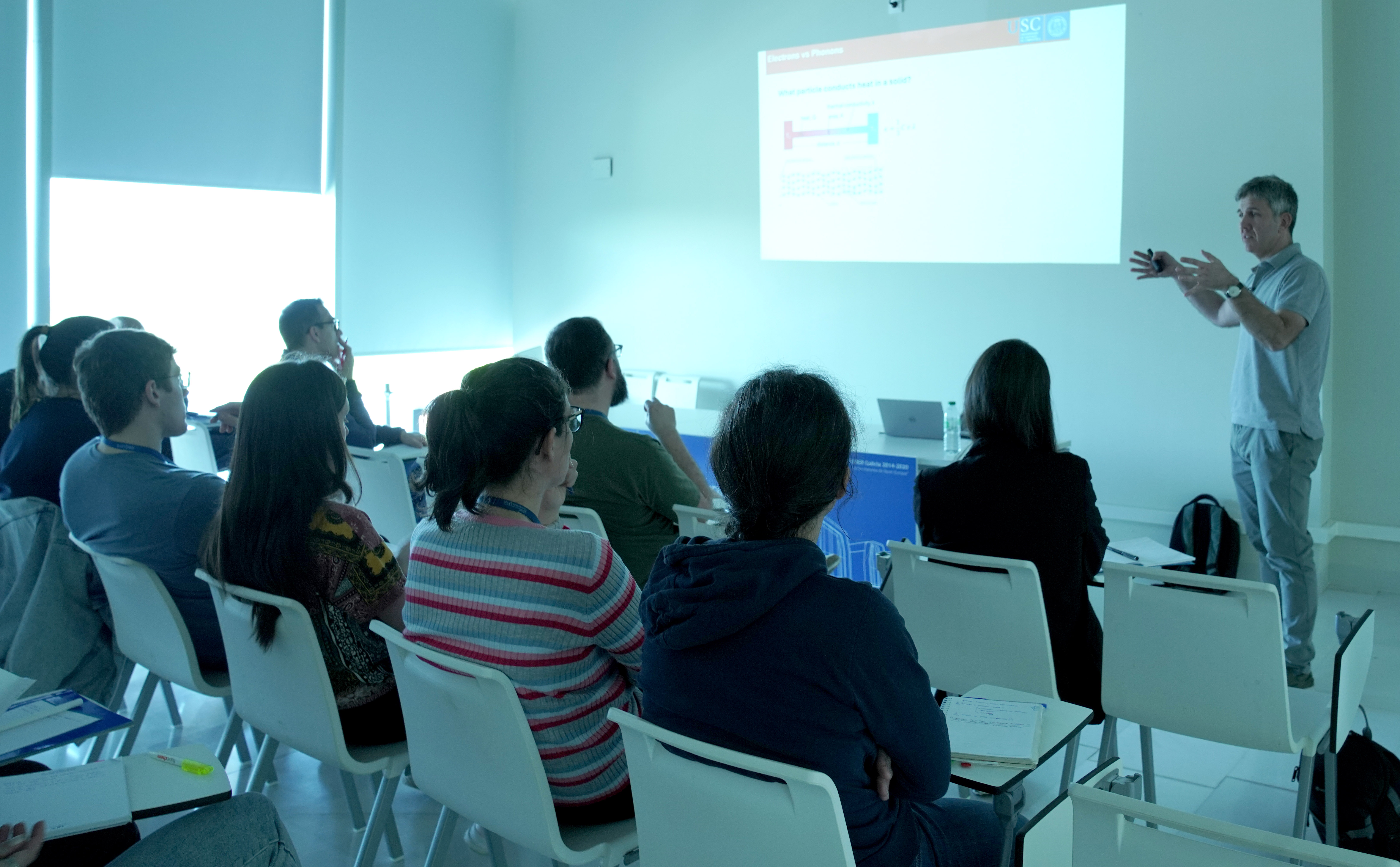Eventos
O xoves 11 de abril de 2024 o Dr. Francisco Rivadulla (Universidade de Santiago de Compostela. Centro de Investigación en Química Biolóxica e Materiais Moleculares - CiQUS), ofrecerá o seminario Methods to control the thermal transport in soft and hard matter, dentro do ciclo "CINBIO Seminar Programme".
Será ás 11:00h na Sala de seminarios de Torre CACTI.

ABSTRACT:
Controlling the thermal conductivity of a material using an external stimulus could change the way we deal with the problem of thermal dissipation in microelectronics or the efforts to increase the efficiency of thermoelectric energy conversion devices. During the last few years, this research focused mostly on solid-state devices, particularly ferroelectrics or multilayer heterostructures.
In this talk I will describe our efforts to contribute to the development of methods to control the thermal conductivity in different types of materials.
In the first part of the talk, I will describe how we used photoactive (azobencene-derivatives) molecules as active dopants into achiral liquid crystal matrixes to induce a complete and reversible molecular reorganization of the mesophase under UV/Vis irradiation, with a large change in the thermal conductivity of the whole system. By this method, we were able to induce a bi-directional switching of the thermal conductivity at room temperature.
In the second part, I will focus on the electric-field control of the thermal conductivity in transition metal oxides. I will show how oxygen vacancies can be controlled by an electric field in (Ca,Sr)FeO3 oxides, inducing large changes in the thermal conductivity. This can be done by using a solid electrolyte (ionic conductors) or through the use of local electric fields with a voltage-biased AFM tip. In the latter approach, a local control (micrometer-size) over the thermal conductivity of the solid can be achieved.
Also, in the talk I will review the experimental challenges in the precise determination of thermal conductivity in nanostructures.






